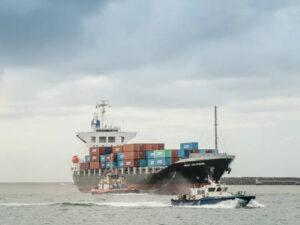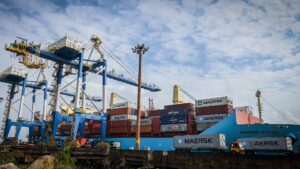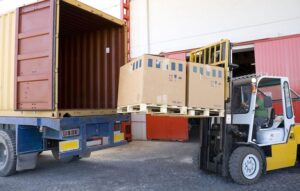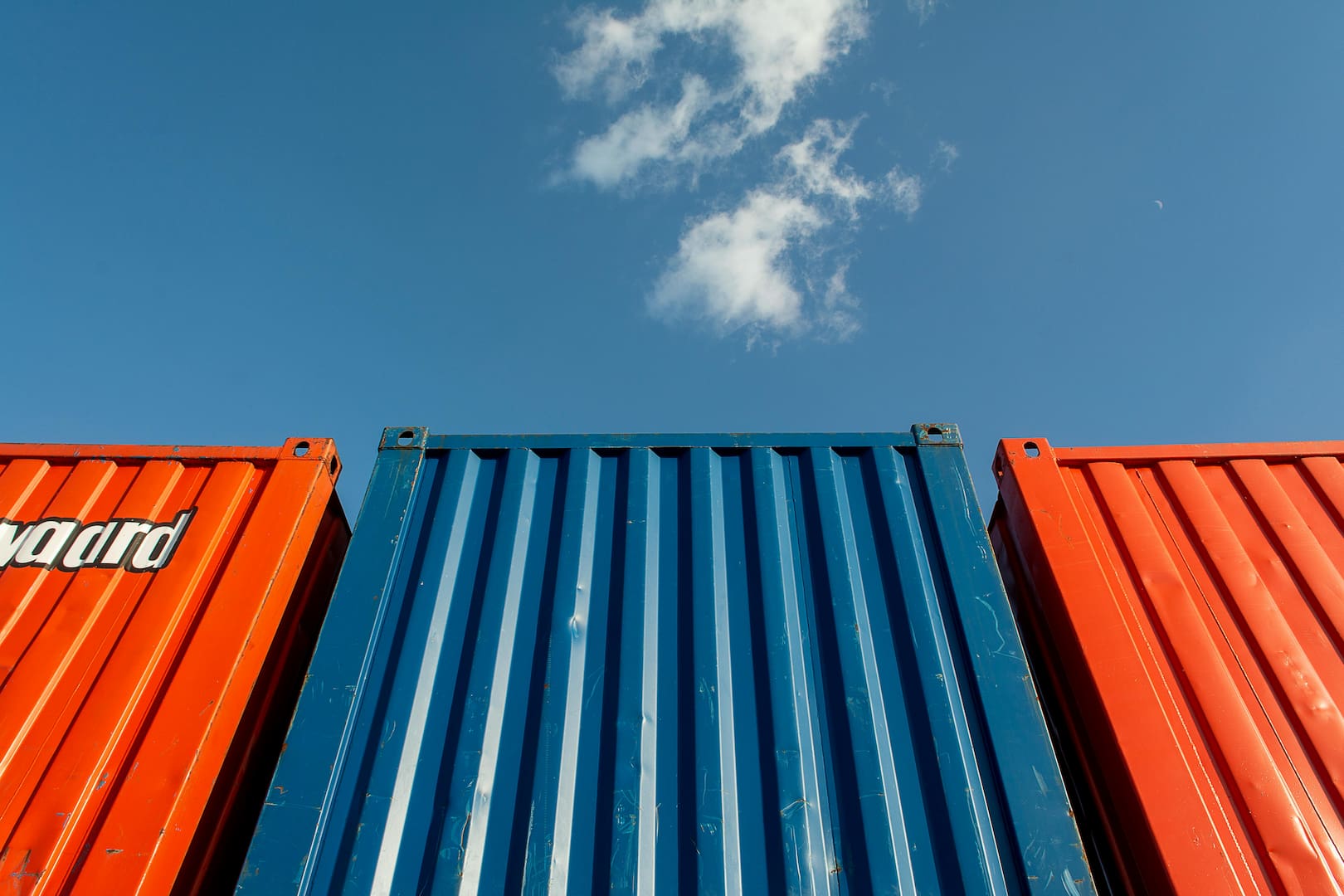
Most sea freight only transports containers weighing over 100 kg. But what about smaller shipments that don’t require an entire container? That’s when LCL comes into play. LCL, which stands for Less-than-Container Load Shipping, is one effective way to ship small quantities of goods without using the entire container.
For more information about LCL shipping and the types of common goods available for shipment, read on to find out.
What is Less-than-Container Load?
Less-than-Container Load, also known as LCL, is a shipping method where cargo is shipped by sea freight, using only a portion of the container’s capacity. The remaining capacity will be occupied by goods from other businesses.
In other meanings, LCL shipping refers to when cargo from multiple businesses is consolidated into one container. This shipping method is beneficial for businesses that ship goods in small volumes and don’t require an entire container. Businesses will only have to pay for the space their goods occupy, offering flexibility to those with smaller volumes.
Understanding Goods Suitable for LCL Shipping
It is important to understand the type of goods that are suitable for LCL. Not all items are suitable to ship by LCL service. LCL is ideal for goods that are compact, non-perishable and can be safely combined with other shipments as they will be sharing the space with other businesses’ goods.
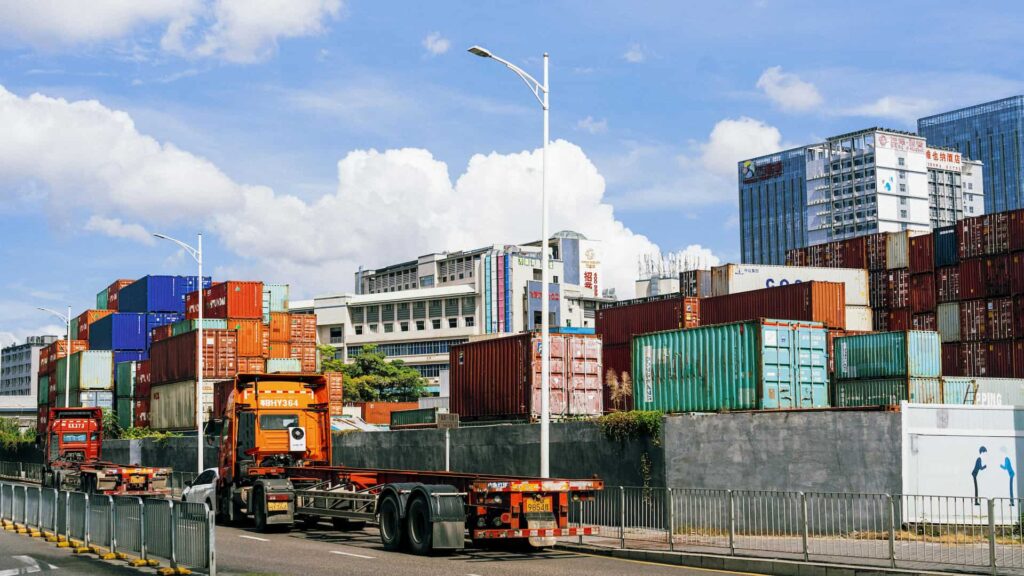
Types of Goods Shipped via Less Than Container Load (LCL)
Below are the types of goods that can be safely shipped via LCL shipping:
1. Consumer Goods
Consumer goods that can be shipped using LCL shipment include items such as clothing, shoes, homeware, packaged food and beauty products. These goods are generally lightweight and can be packed into small boxes or crates for easier consolidation.
2. Electronics
Electronic items that are small can be shipped using LCL shipment. These items include mobile phones, laptops, tablets, TVs, computer parts as well as accessories and gaming consoles. Ensure they are packed carefully and securely to prevent damage during transit.
3. Small Machinery
Small machinery and tools like motors and industrial components are commonly shipped via LCL shipment. During the shipping process, ensure proper packaging is done for their safety.
4. Spare Parts
Another type of goods shipped via LCL is spare parts for automobiles, machinery and equipment. They are also commonly shipped through LCL.
List of Prohibited Goods from Using LCL Service
When using the LCL shipping method, there are restrictions whereby certain types of goods are prohibited from being shipped for safety and regulatory purposes. These prohibited goods include:
- Hazardous Materials: They include explosives, toxic, flammable, reactive chemicals or radioactive substances.
- Perishable Goods: Including items that require refrigeration or specialized storage such as fresh food or plants.
- Illegal Items: Illegal items are such as prohibited items or items prohibited by law.
- High-value Items: These include artwork, expensive jewelry and antiques.
What Type of Business Rely on LCL Shipping?
1. Small and Medium-sized Enterprises (SMEs)
LCL shipping is perfect for SMEs that regularly ship smaller volumes of goods. It allows these businesses to share container space with other consignments, optimizing costs and ensuring their products reach global markets without the need to fill an entire container.
2. E-commerce Sellers
For e-commerce businesses that frequently ship products to customers in different locations, LCL shipping provides the flexibility needed to manage smaller, more frequent shipments. This helps businesses maintain efficient delivery schedules and meet customer demand without the overhead of full container costs.
3. Import/Export Traders
Businesses that need cost-effective solutions for smaller volume shipments.
4. Startups Company
Startups with limited inventory or those just entering the market can benefit from LCL shipping by minimizing their shipping expenses. This allows them to scale their operations as they grow, without committing to the costs associated with full container loads.
5. Seasonal Shippers
Businesses with seasonal inventory or fluctuating demand can take advantage of LCL shipping to manage their supply chain more effectively. It allows them to ship smaller quantities when needed, providing the agility to respond to market changes without overcommitting on shipping costs.
6. Household Relocation
LCL shipping is an excellent option for individuals or families moving their household items internationally. If you’re relocating overseas and do not have enough belongings to fill a full container, LCL allows you to share container space with others, making it a cost-effective and practical solution for transporting your personal effects.
Advantages of LCL Shipping for B2B
Here are some advantages of LCL service for B2B and why businesses should opt for it:
1. Cost-effective Shipping
Less than container load is ideal for smaller shipments that do not require a full container, allowing businesses to share space with other consignments and reduce shipping costs. This makes it a highly economical choice for companies looking to ship smaller volumes of goods. Businesses will only need to pay for the space occupied by their goods in the container.
2. Flexibility to Ship Frequently
With frequent shipping schedules, LCL offers great flexibility, enabling shippers to plan and schedule their shipments more conveniently. This flexibility can be particularly advantageous for businesses with varying shipment sizes or those needing to ship goods on a regular basis.
3. Ideal for Diverse Cargo Types
LCL shipping is ideal for a wide range of goods as long as they’re non-perishable, compact and can be shipped together by other goods.
4. Stored and Managed More Efficiently
Due to the smaller volume of goods, inventory can be managed more effectively and efficiently.
5. Accessibility to Global Markets
LCL cargo services provide access to a wider range of destinations through consolidated shipping networks. This can be particularly beneficial for reaching less common or remote markets that may not always be served by full container services.
6. Optimized Space Utilization
LCL shipping maximizes the use of container space by consolidating smaller shipments into one container. This ensures that space is used efficiently, reducing waste and optimizing shipping logistics.
7. Environmental Benefits
By consolidating multiple shipments into one container, LCL shipping can help reduce the overall number of shipments, thereby lowering the carbon footprint associated with transportation. This makes it a more sustainable option compared to sending multiple small shipments separately.
8. Reduced Inventory Costs
By shipping smaller quantities more frequently, businesses can reduce the need for large inventories, leading to lower storage costs and less capital tied up in stock. This is particularly beneficial for businesses operating on a just-in-time inventory model.
9. Accessibility for Small Businesses
LCL shipping allows smaller businesses, which may not have the volume to fill a full container, to access international markets. This provides an opportunity for growth and expansion without the financial burden of full container costs.
Conclusion
LCL shipping is a practical and cost-effective solution for businesses looking to ship small volumes of goods locally and globally. Not only is it cost-effective, LCL is also flexible and suitable for a diverse range of cargo types, making it an ideal choice for businesses that don’t require the entire space of a full container.
Partner with Global Track Lines for reliable, hassle-free and budget-friendly LCL services in Malaysia. With our team of professionals, we ensure your shipments are efficiently consolidated, handled with utmostcare,e and delivered on time. Contact us today for more details!

